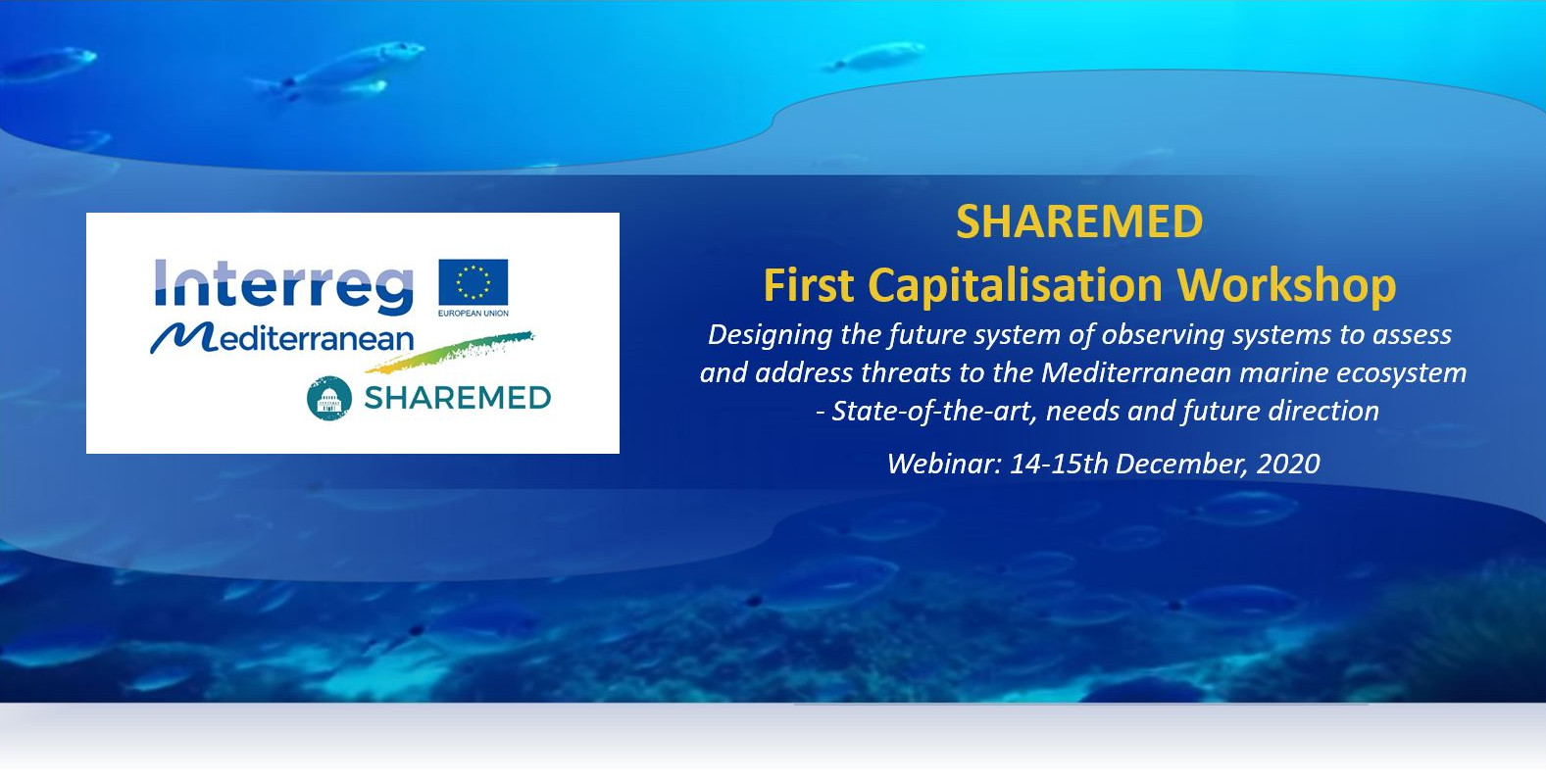
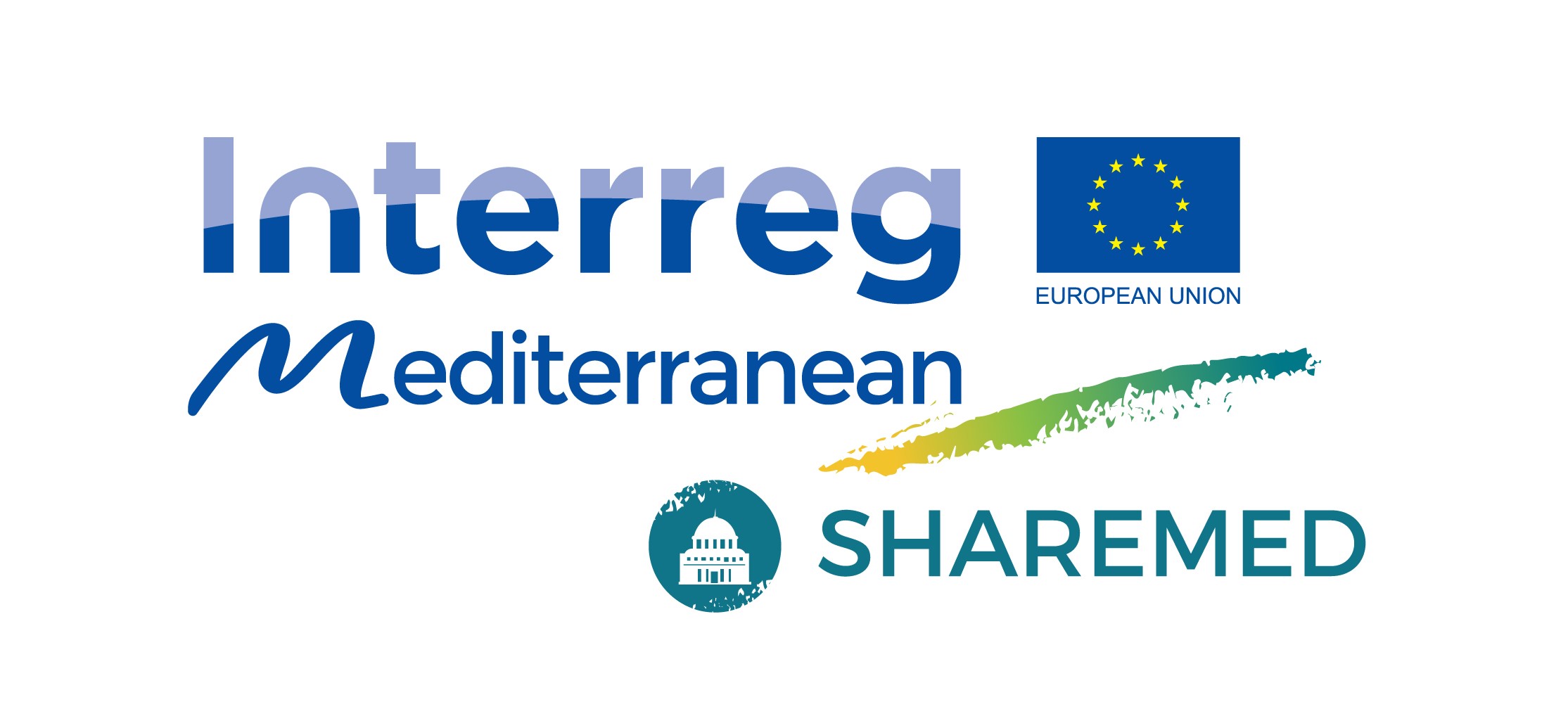 SHAREMED focuses on increasing the capabilities to
assess and address hazards related to pollution
and environmental threats in Mediterranean transnational
waters.
SHAREMED focuses on increasing the capabilities to
assess and address hazards related to pollution
and environmental threats in Mediterranean transnational
waters.This goal will be achieved by sharing knowledge, observations and technologies as well as building common frameworks, tools and services to assess and possibly forecast impacts of environmental threats to the marine ecosystems. Different sites will follow a common procedure but can focus on different aspects and environmental threats, depending on the site and size specificity. The project will focus on selected causes of environmental hazard to be chosen in agreement with stakeholders and regional strategies among pollution, changes in trophic regime, weather/climate changes. |

|
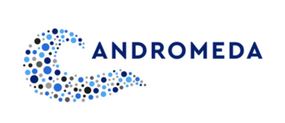 Current methods for microplastic (MP) analysis can be divided
in low-cost versus more advanced methods. ANDROMEDA recognizes
that further development and validation is needed for both
approaches. There is a need for low-cost methods that can
identify a broad range of MP polymers with acceptable accuracy.
Advanced methods need to be further developed to push the limit
of detectability for smaller sizes of MP and nanoplastics (NP)
and which are able to analyze MP types that are currently
difficult to analyze by microspectroscopy. Moreover, to
study plastic degradation mechanisms over a reasonable
time frame, lab-based accelerated degradation approaches
are required to mimic natural fragmentation and additive
chemical leaching. Within ANDROMEDA, in situ MP detection,
efficient sampling and cost-effective laboratory methods
will be developed and optimized to analyze MP. Approaches
will be based on hyperspectral imaging, chemical markers
and fluorometric detection techniques. Advanced analysis
techniques making use of µFTIR, Raman imaging and SEM-EDX
will be applied to quantify and characterize MP and NP
down to 1 µm, 0.2 µm or lower. Specific tasks will be
dedicated to challenging types of MP such as microfibers,
TWPs and paint flakes. UV, hydrolytic and thermo-oxidative
methods to study accelerated plastic degradation at the lab
scale will be developed and used to prepare partially degraded
reference materials. Comprehensive degradation studies will be
conducted to study in detail the mechanisms of UV and microbial
degradation, as well as investigating the influence of parameters
such as T, pH and hyperbaric pressure, where special attention
will be paid to additive chemical leaching.
Current methods for microplastic (MP) analysis can be divided
in low-cost versus more advanced methods. ANDROMEDA recognizes
that further development and validation is needed for both
approaches. There is a need for low-cost methods that can
identify a broad range of MP polymers with acceptable accuracy.
Advanced methods need to be further developed to push the limit
of detectability for smaller sizes of MP and nanoplastics (NP)
and which are able to analyze MP types that are currently
difficult to analyze by microspectroscopy. Moreover, to
study plastic degradation mechanisms over a reasonable
time frame, lab-based accelerated degradation approaches
are required to mimic natural fragmentation and additive
chemical leaching. Within ANDROMEDA, in situ MP detection,
efficient sampling and cost-effective laboratory methods
will be developed and optimized to analyze MP. Approaches
will be based on hyperspectral imaging, chemical markers
and fluorometric detection techniques. Advanced analysis
techniques making use of µFTIR, Raman imaging and SEM-EDX
will be applied to quantify and characterize MP and NP
down to 1 µm, 0.2 µm or lower. Specific tasks will be
dedicated to challenging types of MP such as microfibers,
TWPs and paint flakes. UV, hydrolytic and thermo-oxidative
methods to study accelerated plastic degradation at the lab
scale will be developed and used to prepare partially degraded
reference materials. Comprehensive degradation studies will be
conducted to study in detail the mechanisms of UV and microbial
degradation, as well as investigating the influence of parameters
such as T, pH and hyperbaric pressure, where special attention
will be paid to additive chemical leaching.
|
 SMS delivers a novel automated networked system that enables
real-time in situ monitoring of marine water chemicals in
coastal areas by the detection of a series of contaminants
regulated by the MSFD.
SMS delivers a novel automated networked system that enables
real-time in situ monitoring of marine water chemicals in
coastal areas by the detection of a series of contaminants
regulated by the MSFD.
|
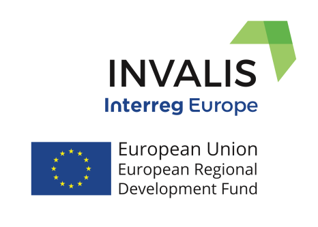
|
 The M3-HABs project (Risk Monitoring, Modelling and Mitigation
of Benthic Harmful Algal Blooms along Mediterranean coasts;
http://m3-habs.net),
co-funded by the ENPI-CBCMED Programme, addressed the
need to develop a pan-Mediterranean strategy to monitor
benthic Harmful Algal Blooms (specifically Ostreopsis
spp.), developing common monitoring and management strategies,
based on early detection and forecasting tools.
The M3-HABs project (Risk Monitoring, Modelling and Mitigation
of Benthic Harmful Algal Blooms along Mediterranean coasts;
http://m3-habs.net),
co-funded by the ENPI-CBCMED Programme, addressed the
need to develop a pan-Mediterranean strategy to monitor
benthic Harmful Algal Blooms (specifically Ostreopsis
spp.), developing common monitoring and management strategies,
based on early detection and forecasting tools.
|
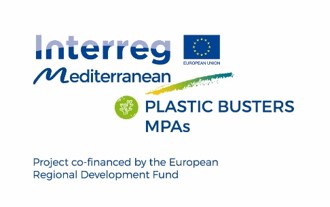
|
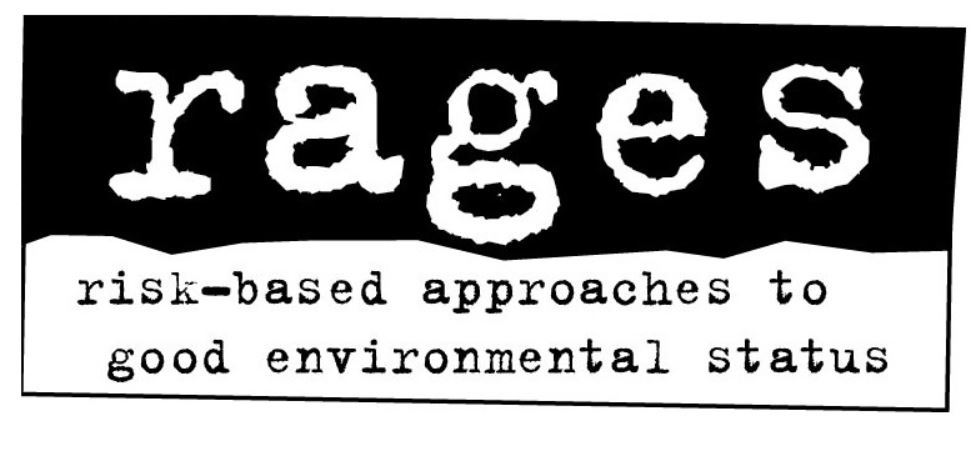
|
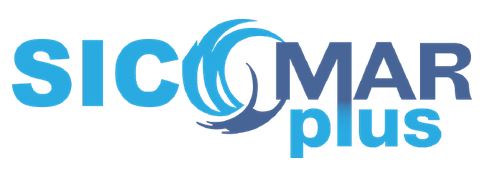
|
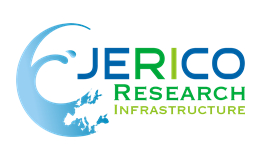
|
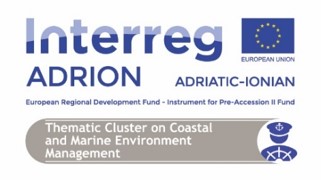
|
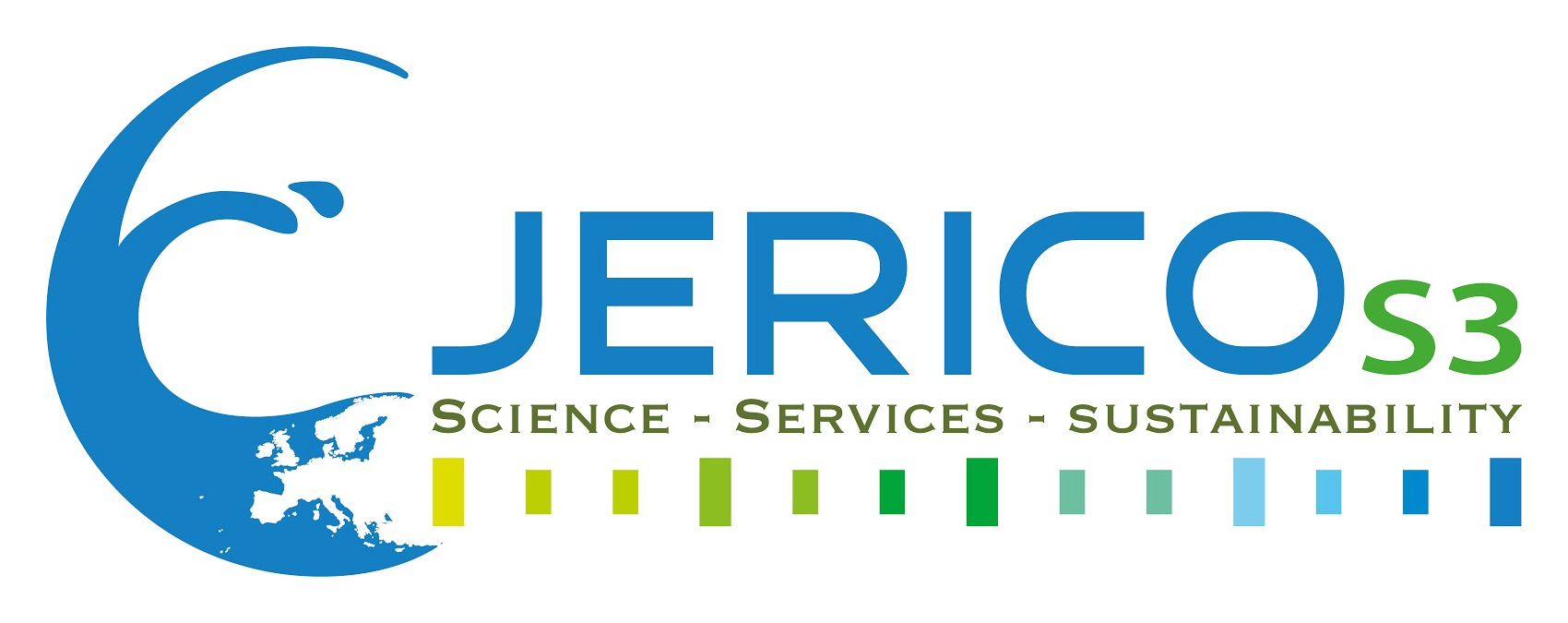 The JERICO-S3 project aims to bring the JERICO-RI to another
level of integration and of relevance for society at large, by
adding new innovative infrastructures, while integrating
biogeochemical and biological observations in an operational
way and increasing its inherent value through cooperation with
other providers of coastal observations and information. The
overarching target of JERICO-S3 is to provide researchers with
continuous and more valuable coastal data and datasets, coupling
physical and biological information, as well as extending the
cooperation with Marine Infrastructures in Europe (CMEMS,
EuroARGO, EMSO, ICOS, EMBRC) and outside Europe (USA, Canada,
Australia, New Zealand, etc).
The JERICO-S3 project aims to bring the JERICO-RI to another
level of integration and of relevance for society at large, by
adding new innovative infrastructures, while integrating
biogeochemical and biological observations in an operational
way and increasing its inherent value through cooperation with
other providers of coastal observations and information. The
overarching target of JERICO-S3 is to provide researchers with
continuous and more valuable coastal data and datasets, coupling
physical and biological information, as well as extending the
cooperation with Marine Infrastructures in Europe (CMEMS,
EuroARGO, EMSO, ICOS, EMBRC) and outside Europe (USA, Canada,
Australia, New Zealand, etc).
|
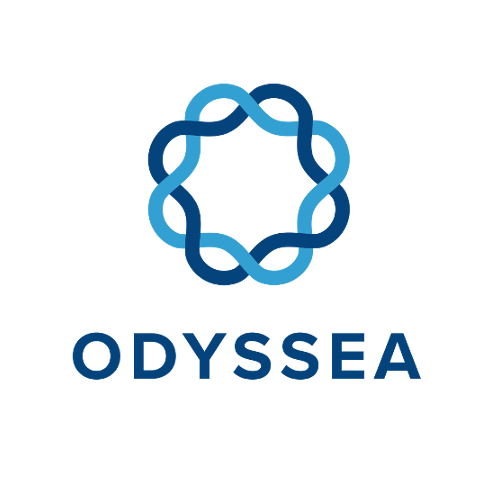 ODYSSEA will develop, operate and demonstrate an interoperable
and cost-effective platform that fully integrates networks of
observing and forecasting systems across the Mediterranean basin,
addressing both the open sea and the coastal zone. The platform
will collect its data from the many databases maintained by
agencies, public authorities, and institutions of Mediterranean
EU and non-EU countries, integrating existing earth observation
facilities and networks in the Mediterranean Sea building on key
initiatives such as Copernicus, GEOSS, GOOS, EMODnet, and others
with marine and maritime links. Through ODYSSEA’s end-user centred
approach, in which the various groups of end-users and stakeholders,
within and external to the Consortium, will be involved from Day 1
of the project in the design, development and operation of the
platform, including identification of gaps in data collection and
accessibility. High priority gaps will be filled through multiple
approaches that include developing a network of coastal observatories,
deploying novel in-situ sensors at sea (a.o. microplastic sensors),
oceanographic modelling and integrating existing mobile apps for
citizen scientist networks. Applying advanced algorithms to organise,
homogenise and fuse the large quantities of data in common standard
type and format as well as other types of formats, the ODYSSEA
platform will provide both primary data and on-demand derived data
services, including forecasts, from ALL Mediterranean countries
through a SINGLE PUBLIC PORTAL to various end-user groups and
stakeholders. End-user requirements will drive the creation of
secondary data sets which the platform will provide as new and
packaged services matching the specialised information needs of
users. ODYSSEA will improve accessibility to existing data as well
as increase the temporal and geographic coverage of observational
data in the Mediterranean.
ODYSSEA will develop, operate and demonstrate an interoperable
and cost-effective platform that fully integrates networks of
observing and forecasting systems across the Mediterranean basin,
addressing both the open sea and the coastal zone. The platform
will collect its data from the many databases maintained by
agencies, public authorities, and institutions of Mediterranean
EU and non-EU countries, integrating existing earth observation
facilities and networks in the Mediterranean Sea building on key
initiatives such as Copernicus, GEOSS, GOOS, EMODnet, and others
with marine and maritime links. Through ODYSSEA’s end-user centred
approach, in which the various groups of end-users and stakeholders,
within and external to the Consortium, will be involved from Day 1
of the project in the design, development and operation of the
platform, including identification of gaps in data collection and
accessibility. High priority gaps will be filled through multiple
approaches that include developing a network of coastal observatories,
deploying novel in-situ sensors at sea (a.o. microplastic sensors),
oceanographic modelling and integrating existing mobile apps for
citizen scientist networks. Applying advanced algorithms to organise,
homogenise and fuse the large quantities of data in common standard
type and format as well as other types of formats, the ODYSSEA
platform will provide both primary data and on-demand derived data
services, including forecasts, from ALL Mediterranean countries
through a SINGLE PUBLIC PORTAL to various end-user groups and
stakeholders. End-user requirements will drive the creation of
secondary data sets which the platform will provide as new and
packaged services matching the specialised information needs of
users. ODYSSEA will improve accessibility to existing data as well
as increase the temporal and geographic coverage of observational
data in the Mediterranean.
|
 SEACAMS2 is a €35M ERDF and Welsh Government funded investment
designed to increase investment in the Ocean Renewable Energy
(ORE) sector in Wales. Collaborative research with industry is
addressing key questions from the ORE industry designed to de-risk
investment decisions for the sector. SECAMS2 researchers have
developed and apply cutting edge observational systems and advanced
numerical models to assess the energy resource and determine
environmental potential impacts of renewable energy devices on
benthic and pelagic ecosystems. In response to user demands for
single point of access to all SEACAMS data a new data infrastructure
(iMarDIS) has been developed. Designed from the outset with users,
iMarDIS is a state-of-the-art cloud based infrastructure capable of
hosting the multi-terabyte data derived from data intensive science.
A web portal provides a data discovery and download service that
accesses iMarDIS via an API.
SEACAMS2 is a €35M ERDF and Welsh Government funded investment
designed to increase investment in the Ocean Renewable Energy
(ORE) sector in Wales. Collaborative research with industry is
addressing key questions from the ORE industry designed to de-risk
investment decisions for the sector. SECAMS2 researchers have
developed and apply cutting edge observational systems and advanced
numerical models to assess the energy resource and determine
environmental potential impacts of renewable energy devices on
benthic and pelagic ecosystems. In response to user demands for
single point of access to all SEACAMS data a new data infrastructure
(iMarDIS) has been developed. Designed from the outset with users,
iMarDIS is a state-of-the-art cloud based infrastructure capable of
hosting the multi-terabyte data derived from data intensive science.
A web portal provides a data discovery and download service that
accesses iMarDIS via an API.
|
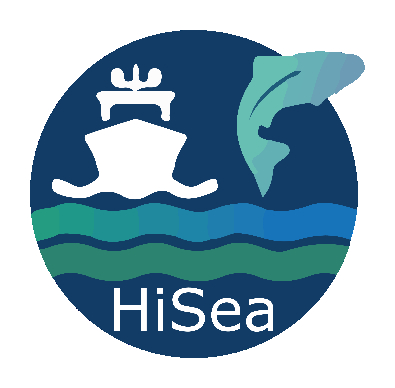
|
 COMMON SENSE is devoted to provide innovative sensors for emerging pollutants,
making the data accessible through a web platform, in order to support the
implementation of the MSFD and CFP.
COMMON SENSE is devoted to provide innovative sensors for emerging pollutants,
making the data accessible through a web platform, in order to support the
implementation of the MSFD and CFP.
|
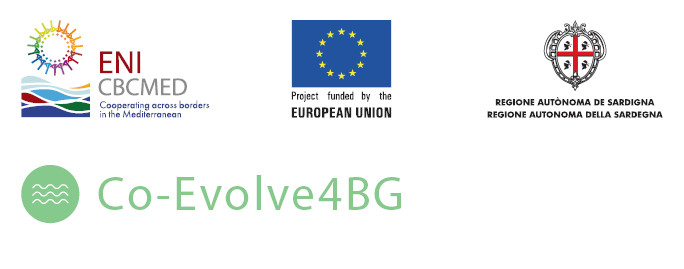
|
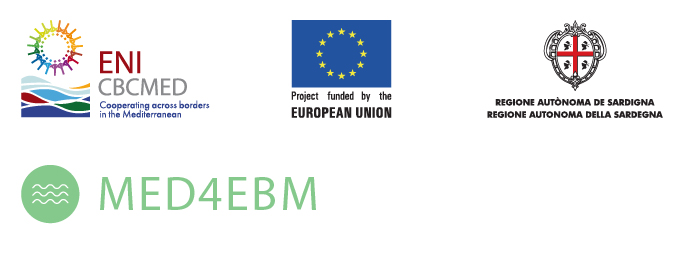 MED4EBM project was financially supported by the European Union
under the ENI CBC Med Program and it involved six partners: the
United Nations Development Program (UNDP)-Jordan Country Office
as lead beneficiary, the Planning and Development Consulting
(PROGES), the association Amici della Terra (AdT), the Royal
Marine Conservation Society of Jordan (JREDS), the National
Institute of Marine Sciences and Technologies (INSTM) and the
Tyre Coast Nature Reserve (TCNR). MED4EBM project intends to
assist Integrated Coastal Zone Management (ICZM) actors and
stakeholders in four Mediterranean coastal areas, the coasts
of Aqaba (Jordan), Tarsia lake (Italy), Kneiss islands nature
reserve (Tunisia) and Tyre Coast Nature Reserve (Lebanon), to
jointly develop and apply a common reference-model and methodology
to make ecosystem-based ICZM much easier to design and implement
by applying innovative methods and tools. The project will develop
spatial planning software and operational protocols for data analysis,
integration and forecasting in support of decision-makers; and
enhance cross border capacity of public authorities to plan for,
sustainably manage, use and monitor their coastal ecosystems,
using an effective participatory approach with relevant stakeholders
and local communities. ICZM stakeholders and institutional actors
can thus easily establish ecosystem-based ICZM local/national and
regional/cross-border cooperation and coordination platforms.
Governments and other ICZM stakeholders can use these platforms
to take informed decisions for establishing Ecosystem-Based governance
protocols for coastal and marine resources. Institutions concerned
with ICZM in the four Project’s target areas will also jointly
undertake the spreading of the common methodology they have developed
around the Mediterranean by establishing a joint EBM and ICZM regional
Forum and Centre.
MED4EBM project was financially supported by the European Union
under the ENI CBC Med Program and it involved six partners: the
United Nations Development Program (UNDP)-Jordan Country Office
as lead beneficiary, the Planning and Development Consulting
(PROGES), the association Amici della Terra (AdT), the Royal
Marine Conservation Society of Jordan (JREDS), the National
Institute of Marine Sciences and Technologies (INSTM) and the
Tyre Coast Nature Reserve (TCNR). MED4EBM project intends to
assist Integrated Coastal Zone Management (ICZM) actors and
stakeholders in four Mediterranean coastal areas, the coasts
of Aqaba (Jordan), Tarsia lake (Italy), Kneiss islands nature
reserve (Tunisia) and Tyre Coast Nature Reserve (Lebanon), to
jointly develop and apply a common reference-model and methodology
to make ecosystem-based ICZM much easier to design and implement
by applying innovative methods and tools. The project will develop
spatial planning software and operational protocols for data analysis,
integration and forecasting in support of decision-makers; and
enhance cross border capacity of public authorities to plan for,
sustainably manage, use and monitor their coastal ecosystems,
using an effective participatory approach with relevant stakeholders
and local communities. ICZM stakeholders and institutional actors
can thus easily establish ecosystem-based ICZM local/national and
regional/cross-border cooperation and coordination platforms.
Governments and other ICZM stakeholders can use these platforms
to take informed decisions for establishing Ecosystem-Based governance
protocols for coastal and marine resources. Institutions concerned
with ICZM in the four Project’s target areas will also jointly
undertake the spreading of the common methodology they have developed
around the Mediterranean by establishing a joint EBM and ICZM regional
Forum and Centre.
|
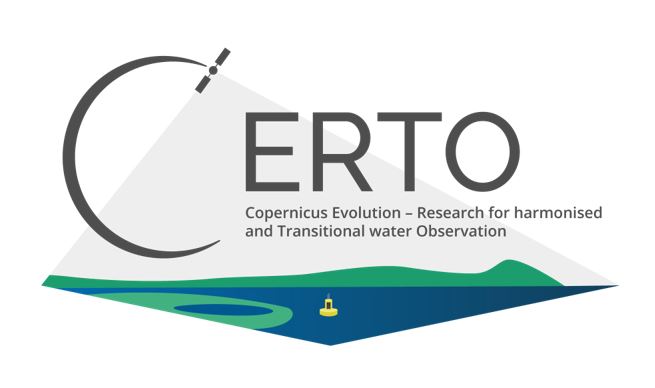 Water quality is a worldwide issue affecting food production,
industry, nature, recreation and ultimately human wellbeing.
Satellites offer a cost-effective solution to monitor water
quality at a global scale; however, a variety of methods and
approaches are currently used in three Copernicus services for
different water bodies such as oceans and lakes while transitional
waters are not covered well by any service. CERTO will develop a
harmonized capability to monitor water quality from lakes, through
deltas, lagoons, estuaries, coastal waters and to the open ocean.
Water quality is a worldwide issue affecting food production,
industry, nature, recreation and ultimately human wellbeing.
Satellites offer a cost-effective solution to monitor water
quality at a global scale; however, a variety of methods and
approaches are currently used in three Copernicus services for
different water bodies such as oceans and lakes while transitional
waters are not covered well by any service. CERTO will develop a
harmonized capability to monitor water quality from lakes, through
deltas, lagoons, estuaries, coastal waters and to the open ocean.
|
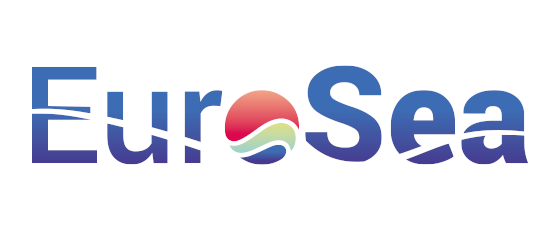
|
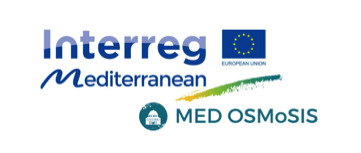 MED OSMoSIS is a project focusing on developing and testing innovative
modules/applications regarding Maritime Surveillance and open data
exchanges that will enhance the interoperability between stakeholders
interested particularly in safety, security and rescue scenarios in
the Mediterranean Sea. Its expected results include a rapid deployment
of interoperable technical solutions, systems and ICT infrastructure,
highlighting all demands among the integration and cooperation challenges
appearing in modern maritime governance within the limits of CISE.
MED OSMoSIS is a project focusing on developing and testing innovative
modules/applications regarding Maritime Surveillance and open data
exchanges that will enhance the interoperability between stakeholders
interested particularly in safety, security and rescue scenarios in
the Mediterranean Sea. Its expected results include a rapid deployment
of interoperable technical solutions, systems and ICT infrastructure,
highlighting all demands among the integration and cooperation challenges
appearing in modern maritime governance within the limits of CISE.
|
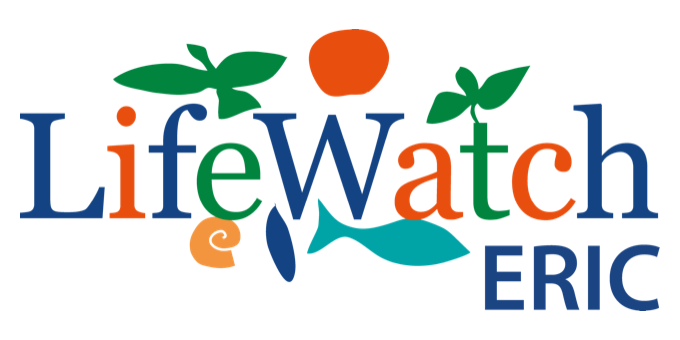 LifeWatch ERIC is the e-Science European infrastructure consortium for
biodiversity & ecosystem research, operating through and investing on
three essential components: open access data (FAIR compliant),
reproducible analytics and mobilised communities. The datasets and
disruptive technologies available through LifeWatch ERIC, like our
Virtual Research Environments (Tesseract), LifeBlock platform and
semantic resources, make it possible to dig deeper and increase our
understanding of biodiversity organisation and ecosystem functions
and services, to test scenarios of change, and finally to help respond
to urgent societal demands, such as those included in the UN Sustainable
Development Goals and the Decade of Ocean Science.
LifeWatch ERIC is the e-Science European infrastructure consortium for
biodiversity & ecosystem research, operating through and investing on
three essential components: open access data (FAIR compliant),
reproducible analytics and mobilised communities. The datasets and
disruptive technologies available through LifeWatch ERIC, like our
Virtual Research Environments (Tesseract), LifeBlock platform and
semantic resources, make it possible to dig deeper and increase our
understanding of biodiversity organisation and ecosystem functions
and services, to test scenarios of change, and finally to help respond
to urgent societal demands, such as those included in the UN Sustainable
Development Goals and the Decade of Ocean Science.
|
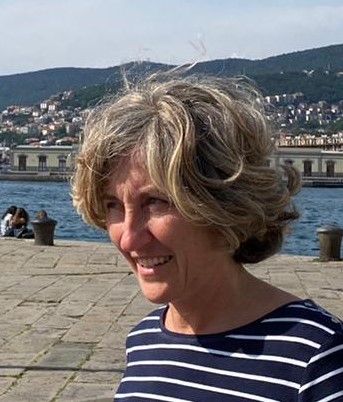
|
Marina Lipizer OGS, Italy Marina Lipizer is marine scientist at the National Institute of Oceanography and of Experimental Geophysics (OGS), involved in research in biological, chemical and physical oceanography, with particular interest on phytoplankton bloom dynamics and on long - term ecosystem variability in coastal areas. She collaborates with the National Oceanographic Data Centre (OGS – NODC) for the management and scientific validation of data of chemical and biological oceanography, in particular those related to Marine Strategy Framework Directive (MSFD). In the last years she has been particularly involved in strengthening the science-policy-society dialogue, with particular focus on environmental directives such as MSFD and MSP. She recently coordinated the Interreg ADRION project HarmoNIA, focussed on marine pollution. |
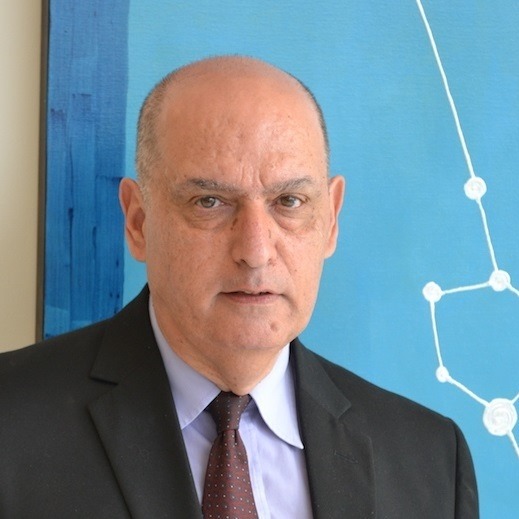
|
Aldo Drago University of Malta, Malta Prof. Aldo Drago, is currently the Co-Ordinator of the Physical Oceanography Research Group (PO-Res. Grp., ex Physical Oceanography Unit, PO-Unit) within the Department of Geosciences. The PO-Res.Grp undertakes oceanographic research, in a holistic perspective, including operational marine observations and forecasts, specialised data management analysis and participation in international cooperative research ventures. The PO-Res.Grp promotes activities in operational oceanography with the installation and maintenance of permanent sea monitoring systems, and the provision of meteo-marine forecasts and related downstream services. Under his direction, the PO-Res.Grp has strengthened its activities, know-how and capability through the participation in several EU funded regional and pan-European scientific projects, INTERREG and MED Programme projects. |
|
Cosimo Solidoro OGS, Italy SHAREMED project leader |
|
|
Andreja Ramšak NIB, Slovenia |
|
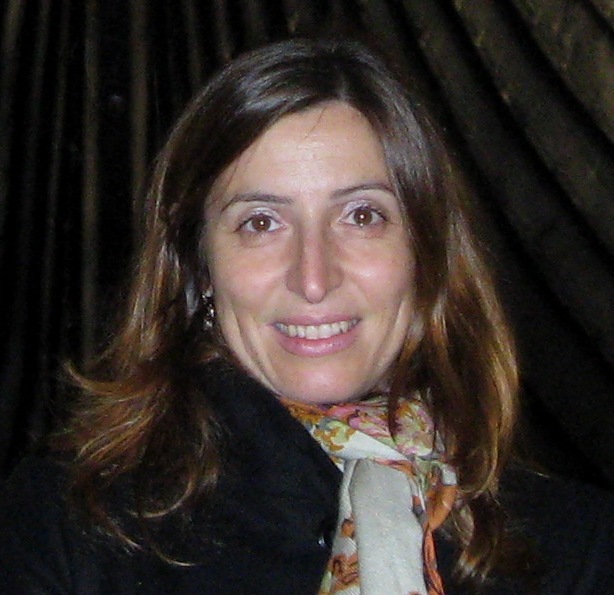
|
Maria João Botelho IPMA, Portugal M. João Botelho (MJB) is a researcher of the Portuguese Institute of Sea and Atmosphere (IPMA), head of the Division of Oceanography and Marine Environment and head of the National Reference Laboratory of Marine Toxins at IPMA. Her expertise is on accumulation and biotransformation mechanisms of marine toxins in bivalves and her research is focused in fate and pathways of marine toxins and biosensors development to toxin detection. MJB participated in more than 24 research projects and contracts and published more than 29 peer-reviewed articles. |
|
Donata Canu OGS, Italy |
|
|
Chiara Lapucci LaMMA, Italy |
|
|
Caroline Cusack Marine Institute, Ireland CoCLIME |
|
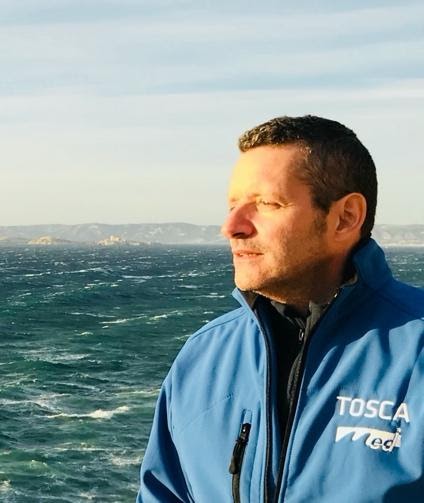
|
Richard Sempéré Mediterranean Institute of Oceanography, France ANDROMEDA Richard Sempéré (RS), PhD, is oceanographer, marine and atmospheric geochemist at AMU-M I O. He is also Director of research at CNRS. |
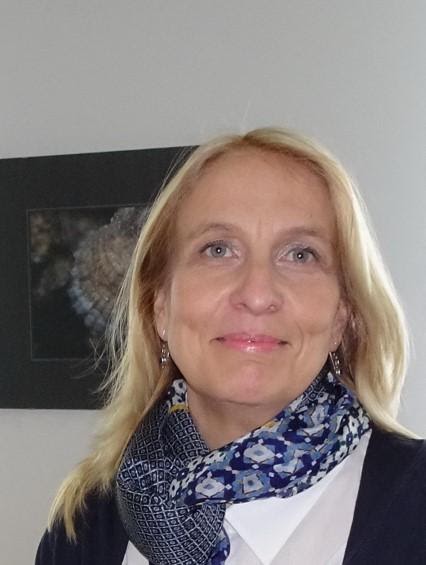
|
Nives Kovač Senior Scientific Associate National Institute of Biology, Marine Biology Station SMS Assoc. Prof. Nives Kovač is researcher (senior research fellow) at the Marine biological station (department of National Institute of Biology, Slovenia) and a Faculty Lecturer (Assistant Professor) at the Faculty of Education, University of Primorska. She has a Ph.D. in Chemistry from University of Ljubljana (Slovenia) and more than 30 years of research experiences. |
|
Petros Varelidis Natural Environment and Climate Change Agency, Greece INVALIS |
|
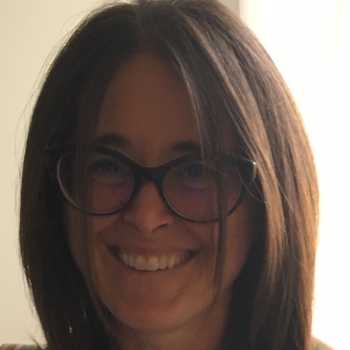
|
Mariachiara Chiantore CoNISMa, Genoa University, Italy M3-HABs Mariachiara Chiantore, project coordinator of M3-HABs is Associate Professor in Ecology at the University of Genoa. She has authored and co-authored over 100 papers on international journals. Main research interests refer to biodiversity and functioning of coastal benthic communities, connectivity and resilience, aquaculture and integrated multi trophic aquaculture, ecology of benthic toxic microalgae, ocean acidification, restoration of species and habitats. |
|
Cristina Fossi University of Siena, Italy PLASTICBUSTERS MPAs |
|
|
Carlo Brandini Lamma, Italy SICOMARplus |
|
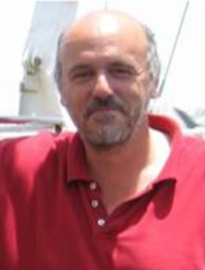
|
João Vitorino Hydrographic Institute, Portugal JERICO João Vitorino is a physical oceanographer at Instituto Hidrografico (IH, the Portuguese Hydrographic Office). He is presently the responsible scientist for IH contribution in the H2020 projects JERICO-S3 and JERICO-Design. |
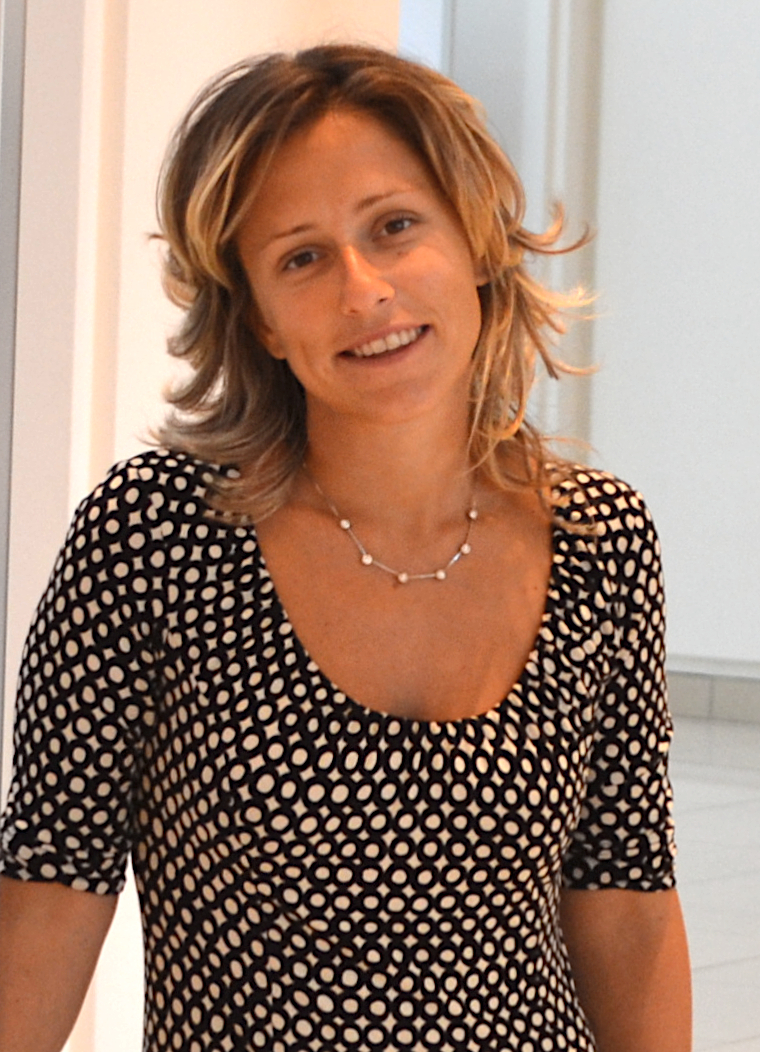
|
Olga Sedioli Regione Emilia Romagna, Italy Interreg ADRION Cluster Olga Sedioli, employee at Emilia-Romagna Region, in the Directorate General for Territory and Environment Protection. Coordinator of PORTODIMARE project and of ADRION Thematic Cluster n. 2. Standing member of the EUSAIR Pillar 3 Thematic Steering Group. |
|
Christian Grenz MIO-AMU, France |
|
|
Fabio Brunetti OGS, Italy |
|
|
Adam Gauci University of Malta, Malta Adam Gauci is a data scientist at the Physical Oceanography Research Group within the Department of Geosciences. He has been involved in a number of projects including the setting up and calibration of the CALYPSO HF Radar System to monitor in real-time sea surface currents across the Malta Channel, the running of a number of meteo-marine observation stations, as well as the organisation of international courses delivered by experts in the related fields of research. He has experience in FP7, Italia-Malta, MED and MCST Programs by being involved in consortium negotiation, budgeting, procurement, tendering, technical installations, setup of data transfer protocols, as well as in the implementation of added value services and their respective validation. Obtained his Ph.D. with the Department of Intelligent Computer Systems at the University of Malta with research on the applications of Machine Learning techniques on mega-dimensional datasets. His interdisciplinary investigations support the cooperation between domain-specific researchers which has become increasingly important in scientific fields of study. |
|
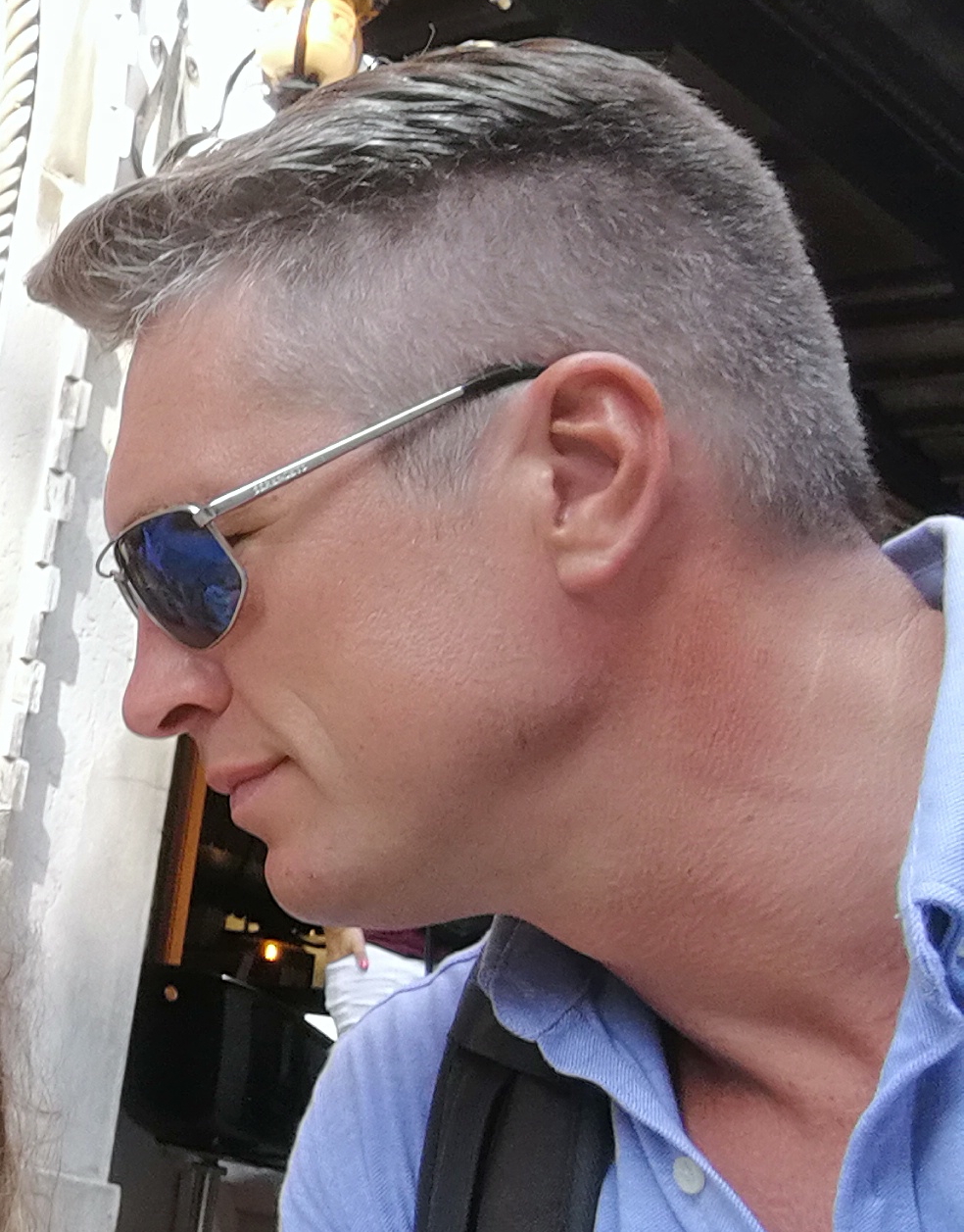
|
Martin Pfannkuchen Center for Marine Research Ruder Boskovic Institute Dr. rer. nat. Martin Pfannkuchen is the head of the Center for Marine Research (Ruder Boskovic Institute) in Rovinj, Croatia. The Center for Marine Research in Rovinj performs research in the northern Adriatic Sea. |
|
Georgios Sylaios Democritus University of Thrace, Greece ODYSSEA |
|

|
David Mills School of Ocean Sciences, United Kingdom IMARDIS Dr David Mills, Marine Scientist with more than 30 years experience in multidisciplinary marine science. His experience encompasses the development and application of marine observing and modelling systems and more recently data infrastructures to provide better evidence and new knowledge for policy, industry and wider societal users. Affiliation: Senior Research Fellow and Director of IMARDIS, Bangor University Centre for Applied Marine Science, Wales. |
|
Ghada el Serafy Deltares, Netherlands HiSEA |
|
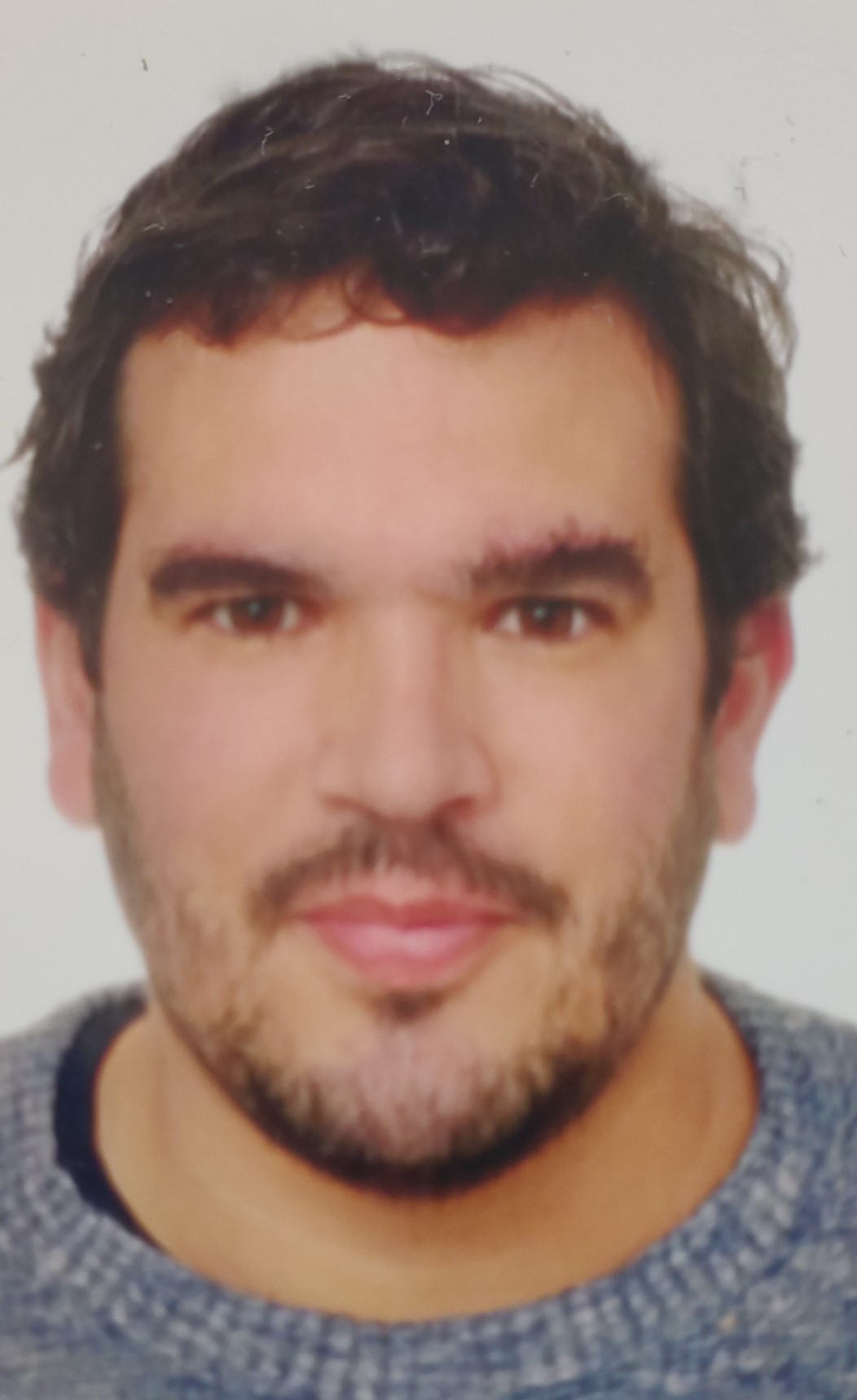
|
Sergio Martínez Universitat de Barcelona Sergio Martínez is Electronical engineering and computer scientific by Universitat de Barcelona. He focus his professional career in the development of innovative automated solutions. He was the coordinator of COMMON SENSE, and nowadays is involved among others in IMPAQT, ODYSSEA and ASTRAL project. |
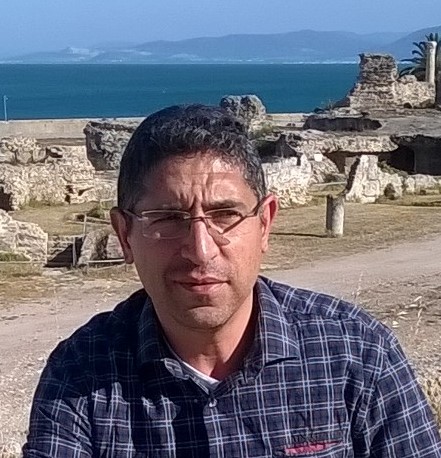
|
Bechir Bejaoui The National Institute of Marine Sciences and Technologies, Tunisia Co-Evolve4BG Béchir BEJAOUI is a researcher at the National Institute of Marine Sciences and Technologies (INSTM, Tunisia). He is working on hydrodynamical and biogeochemical modelling of marine ecosystems. He coordinating IMAS-Icheul project funded by USAID in the frame of PEER program and the Co-Evolve4BG project funded by the EU in the frame of the ENI CBC MED programme. Full affiliation: National Institute of Marine Sciences and Technologies, Tunisia |
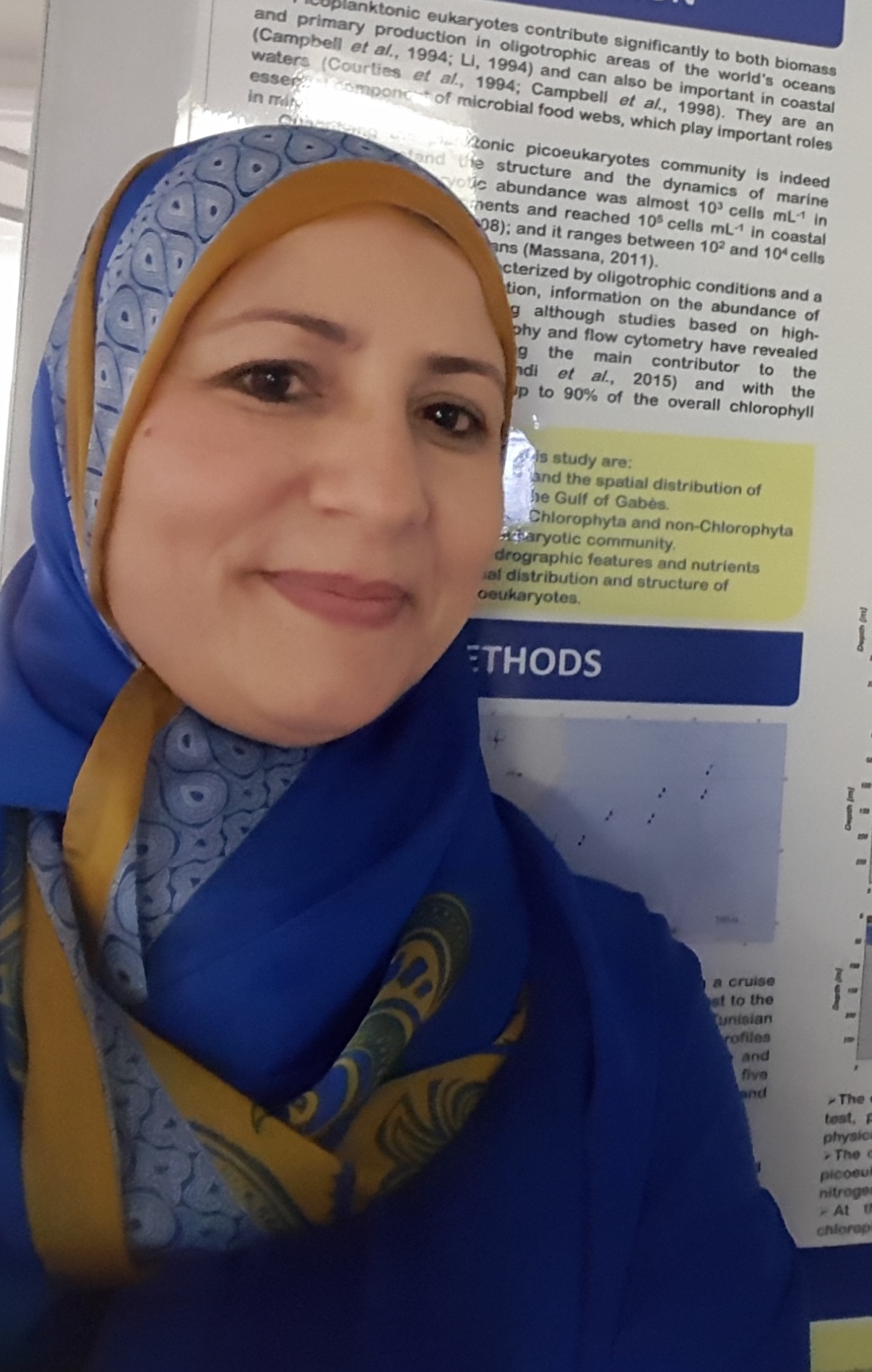
|
Amel Zouari Bellaaj The National Institute of Marine Sciences and Technologies, Tunisia MED4EBM Amel Bellaaj Zouari, PhD in Biology, I am searcher in the National Institute of Marine Sciences and Technologies and member of the Laboratory Marine Environment. My fields of interest are the Microbial Ecology of aquatic microroganisms communities and the Ecosystem functioning and management. Currently, I coordinate MED4EBM Project. |
|
Steve Groom Plymouth Marine Laboratory, UK CERTO Prof. Steve Groom has over 30 years’ experience in satellite and aircraft remote sensing with special interest in ocean colour, coccolithophores, inland waters and near-real time, operational environmental monitoring. He is Head of Science for Earth Observation Science, the largest science area at PML with over 30 tenured staff and has managed over 50 commissioned research projects funded by the UK Natural Environment Research Council (NERC), UK Space Agency, the European Commission (EC), Copernicus, and European Space Agency (ESA). |
|
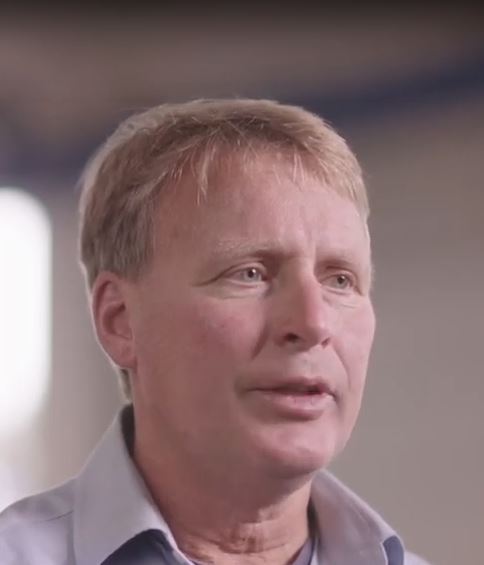
|
Toste Tanhua Geomar, Germany EUROSEA |
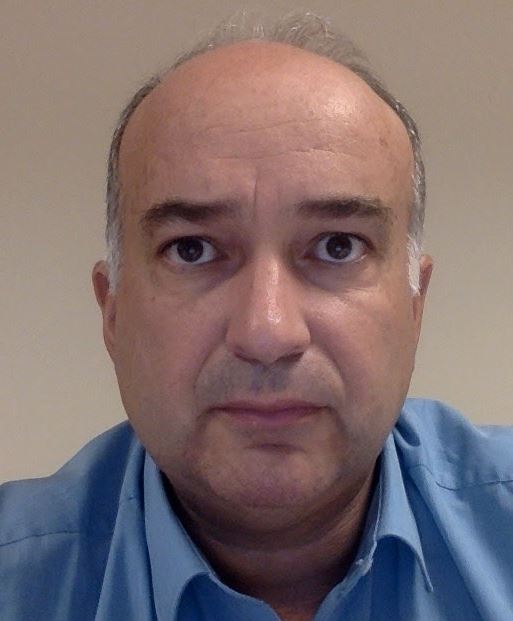
|
Dimitrios Panagopoulos Environmentalist, Officer of Unit B' of the Special Service of EU Structural Funds for the Ministry of Maritime Affairs and Insular Policy Dimitrios Panagopoulos is an environmentalist who works for the Special Service of EU Structural Funds for the Ministry of Maritime Affairs & Insular Policy in Greece. The main objectives and challenges he and his colleagues face within his organization are to work on the strategic financing guidelines of the Ministry and to anticipate several challenges related to the implementation of Integrated Maritime Policy. In particular, subjects such as port and insular policies, the scope of an integrated maritime surveillance supported by new innovative technologies as well as the strategic transition in digitalization, are some of the priorities in mapping, programming and specialization of new projects. |
|
Maria Ana Martins IPMA, Portugal |
|
|
Dragana Drakulović UoM, Montenegro |
|
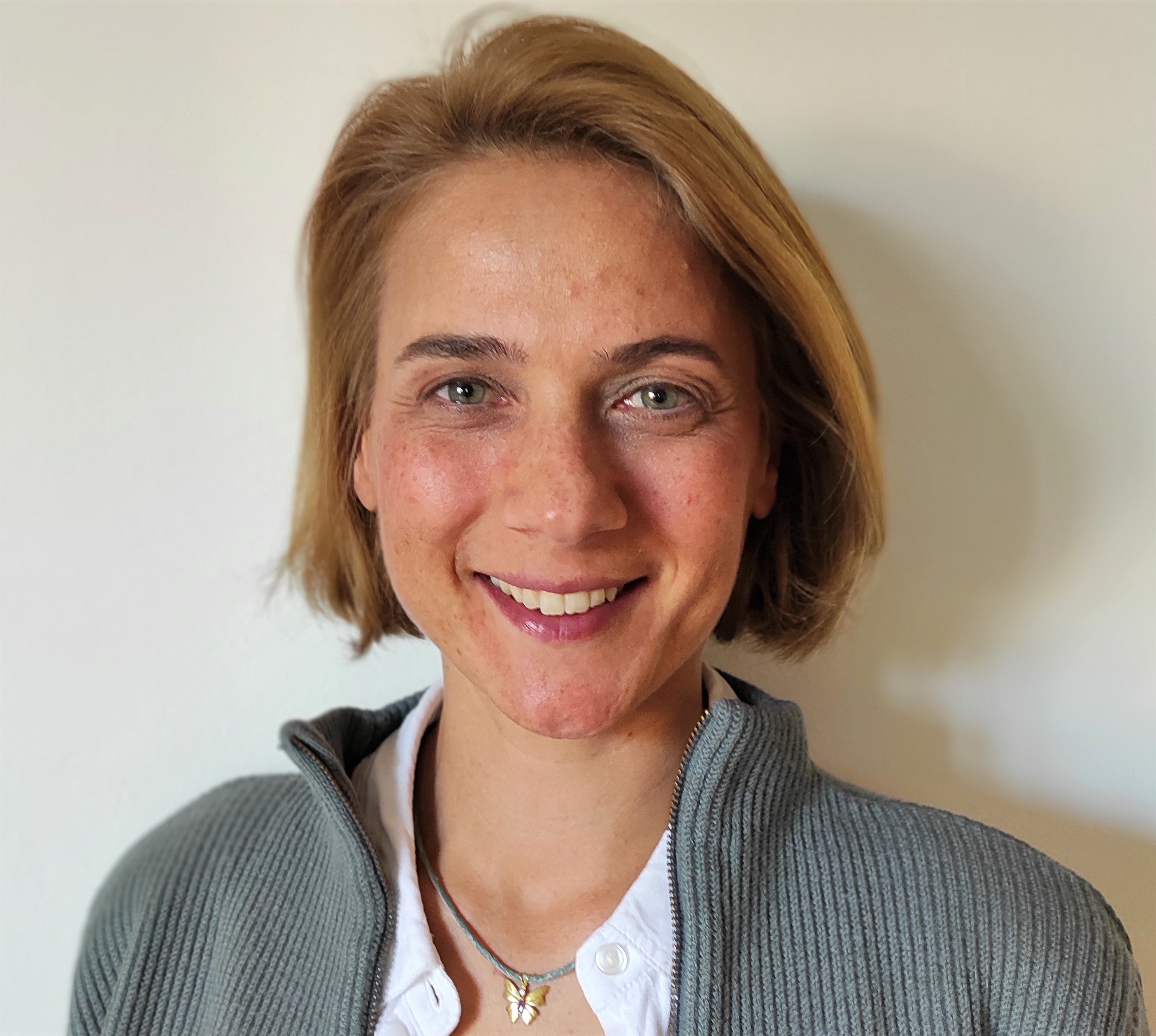
|
Chiara Altobelli OGS, Italy Chiara Altobelli is actually involved in scientific communication and project management at the Italian National Institute of Oceanography and Applied Geophysics (OGS), Oceanography section. She worked as a researcher in the field of marine biologist at the Italian National Institute for Environmental Protection and Research (ISPRA) and as a technical officer at the Ministry for Environment, Land and Sea Protection of Italy (MEIT) involved in national coordination of the environmental monitoring within the Mediterranean basin as required by the Marine Strategy Framework Directive (2008/56/CE). |
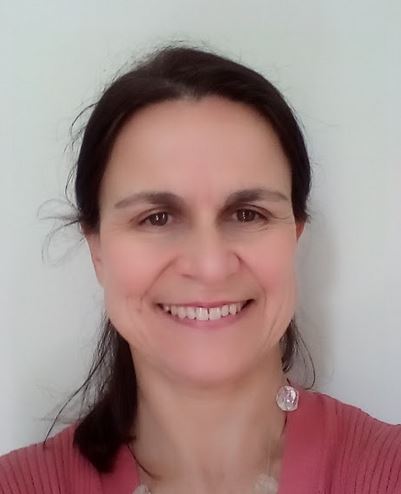
|
Christina Zeri HCMR, Greece Christina Zeri, Chemist Oceanographer, Research Director, Institute of Oceanography, Hellenic Centre for Marine Research (HCMR). Her work focuses on marine pollution from metals and plastics and she is active in the monitoring activities for WFD and MSFD in Greece. |
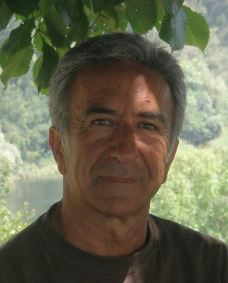
|
Carlos Vale CIMAR, Portugal Carlos Vale (CV) holds habilitation in chemical oceanography and contamination of the coastal zone, and a degree in chemical engineering (IST). Presently, CV is principal researcher at CIIMAR, and he was coordinator researcher of Portuguese Institute of the Sea and Atmosphere (IPMA), director of the Sea Branch of IPMA, member of the Scientific Board of the Master Marine Science (ICBAS, University of Porto), and Vice-President of the International Council for the Exploitation of the Sea (ICES). He co-supervised more than 15 PhD and 25 MSc students and was sponsor of 11 post-docs. CV has more than 40 years of experience in marine science and environmental chemistry. He participated in more than 50 research projects and contracts. CV published more than 240 peer-reviewed articles and 40 book chapters (h-index 49). |
|
Jelena Knezevic UNEP/MAP - MEDPOL |
|
|
Fabio Trincardi CNR – BLUEMED, Italy |
|
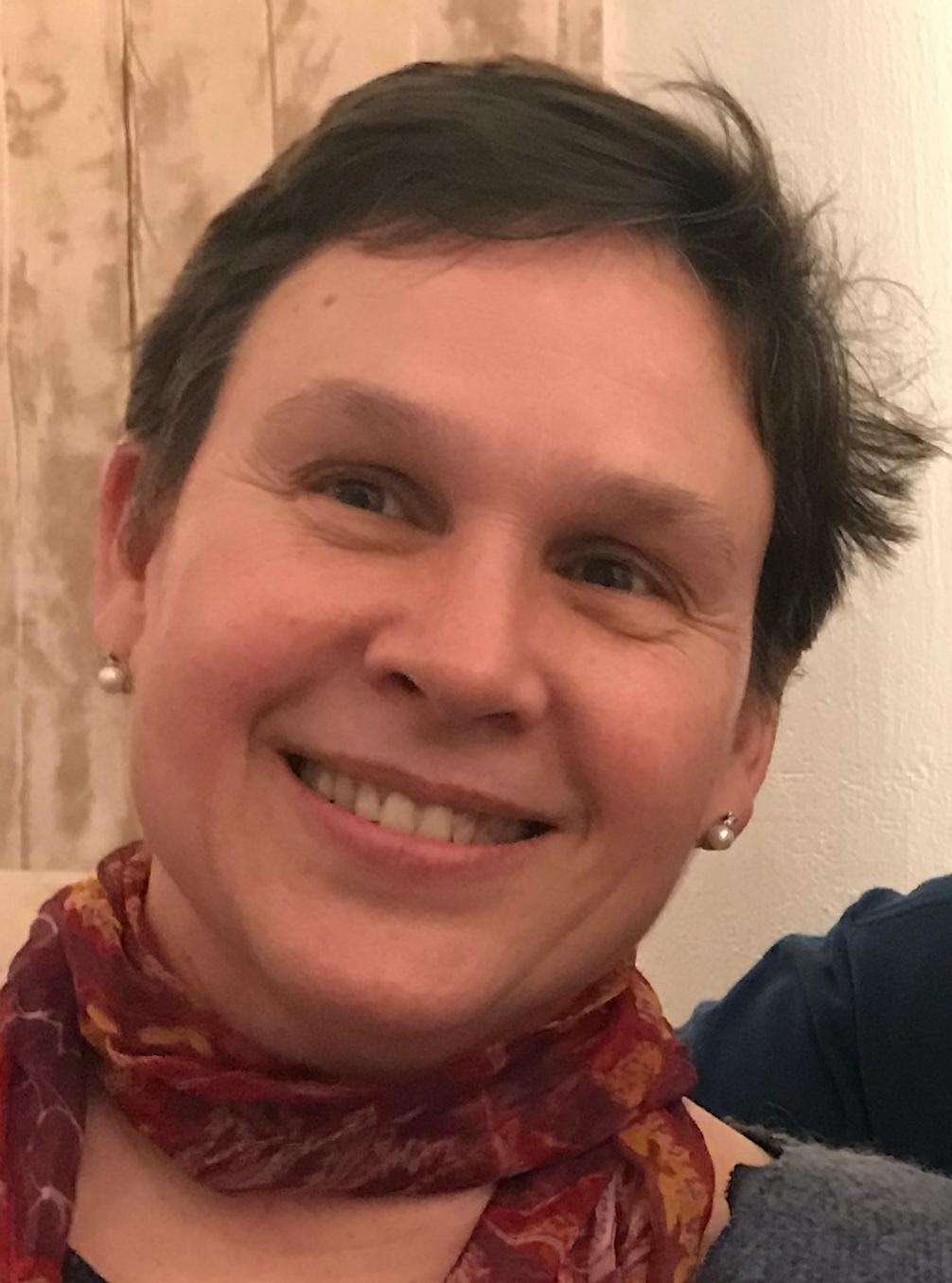
|
Elisa Berdalet CSIC, Spain Dr. Elisa Berdalet (berdalet@icm.csic.es) is Scientific Researcher at the Institute of Marine Sciences (ICM-CSIC), in Barcelona, Spain. Her studies focus on physical-biological interactions in plankton ecosystems, harmful algal blooms (specially on the benthic dinoflagellate Ostreopsis), and ice-ocean interactions in the Antarctica. She is the Chair of the GlobalHAB SSC IOC/UNESCO - SCOR program GlobalHAB, aimed to the coordination of the international research on Harmful Algal Blooms. |
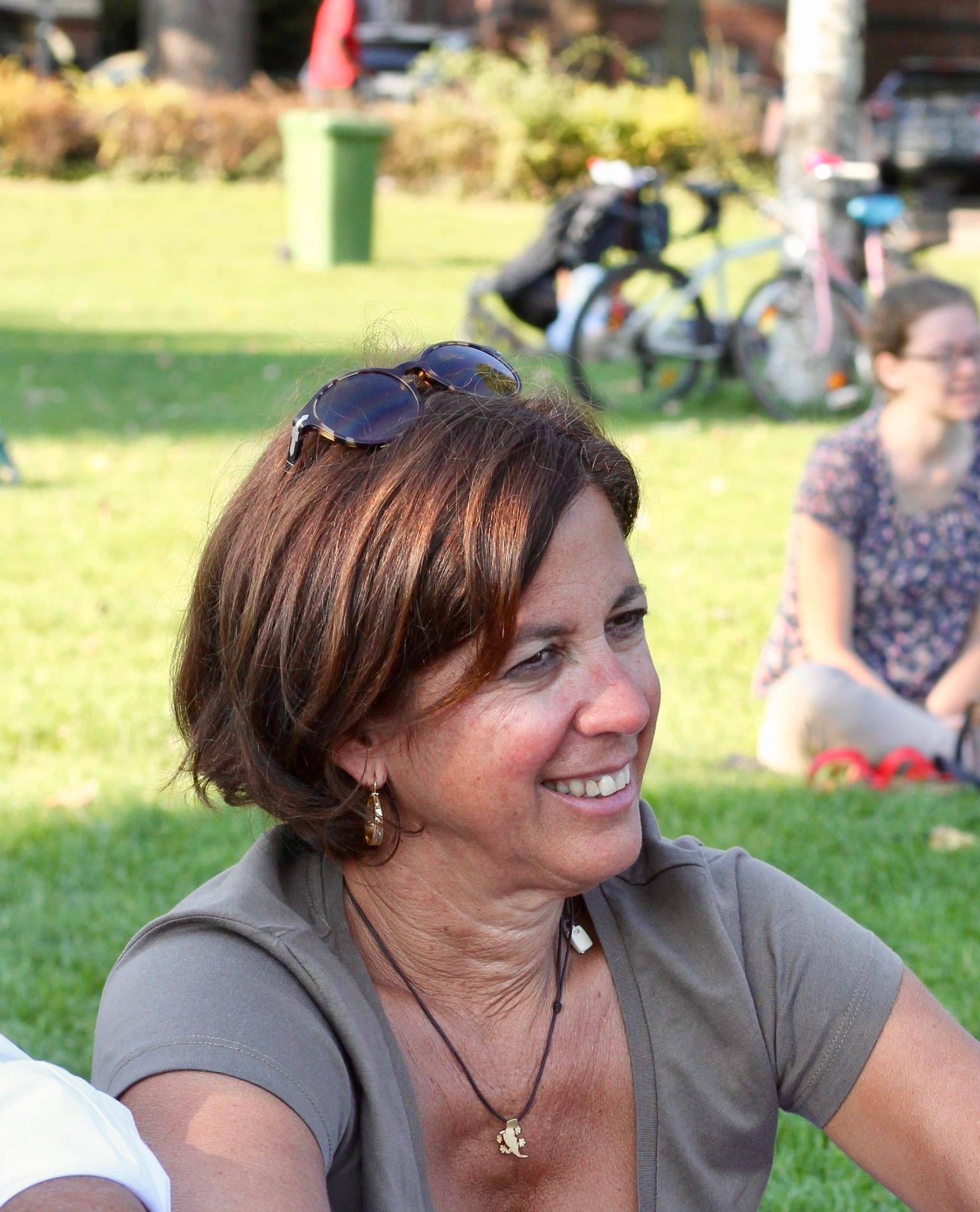
|
Vanessa Cardin MONGOOS OGS, Italy Vanessa Cardin is a senior researcher at OGS with expertise in monitoring the marine environment as well as in the study of processes related to the air-sea interaction in Mediterranean Sea. She is the Co-Chair of the Mediterranean Oceanographic Network of the Ocean Observing System (MONGOOS), P.I. of the South Adriatic Observatory and OGS delegate at EuroGOOS. |
|
Jordi Isern-Fontanet ICM – CSIC, Spain |
|
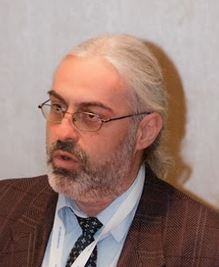
|
Christos Arvanitidis LifeWatch ERIC, Spain Dr Christos Arvanitidis LifeWatch ERIC CEO, Seville, Spain. Research Director in the Hellenic Centre for Marine Research, Institute of Marine Biology, Biotechnology and Aquaculture, former head of the Biodiversity laboratory. Involved in >70 research and education projects, coordinated 10. Research Funding ID: >40 M€. More than 100 peer-reviewed scientific articles, including 3 monographs. Associate Editor in Diversity, Frontiers in Marine Science, Biodiversity Data Journal; Handling Editor in Mediterranean Marine Science; Guest Editor in Marine Ecology Progress Series and Journal of Sea Research; Member of the editorial board of Transitional Waters Bulletin; Reviewer in more than 45 international peer-reviewed journals. Member of: Pool of experts and biodiversity drafting team of UN World Ocean Assessment; National expert on the GES Descriptor “Biodiversity” to EU (MSFD Implementation phase); ICES Task Group 6 working on the seafloor integrity (EU MSDF); Executive Board of MARS (European Network of Marine Research Institutes and Stations); Society for the Marine European Biodiversity Data (SMEBD); Editorial Board of the World Register of Marine Species (WoRMS); Scientific Advisory Council of the International Polychaete Association (IPA); Scientific Council of the Institut Méditerranéen de Biodiversité et d'Ecologie marine et continentale (IMBE). Coordinator of the LifeWatchGreece Research Infrastructure and national delegate to LifeWatch ERIC. Arvanitidis' research focuses on marine biodiversity, biodiversity informatics, functional diversity, and coastal ecosystems. He works on the comparisons of marine biodiversity information patterns deriving from various biological organization levels and scales of observation, trying to develop new approaches to explore their interrelationships. |
|
Giovanni Coppini CMCC, Italy CMEMS |
|
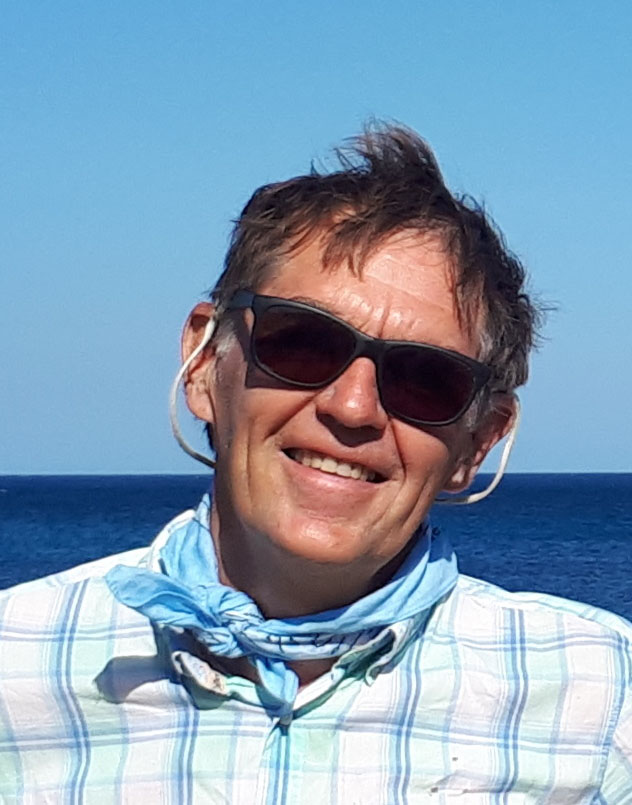
|
Jean-Francois Cadiou IFREMER - European and International Affairs department, France Expert in marine environment, pollution, marine observation and monitoring systems. Former Director of the department of Oceanography and Ecosystem Dynamics at Ifremer, he has been involved in several programs and projects related to pressures and impacts on the Mediterranean coastal ecosystems. |
|
Karim Hilmi Institut National de Recherche Halieutique, Morocco |
|
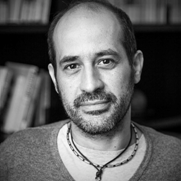
|
Andrea Taramelli ISPRA , Univ. Pavia, Italy Dr Andrea Taramelli is Professor Associate at IUSS University, Pavia and Senior Scientist in Remote Sensing and Surface Coastal Process at the Institute for Environmental Protection and Research Rome. He is Italian national delegate at the European Commission Copernicus User Forum and Copernicus Committee and national expert at the European Maritime Spatial Planning technical group. He is a member of the ‘Technical Space Committee” at the Presidenza del Consiglio dei Ministri. Member of the Joint Scientific Committee of ASI-ISPRA, head of the Space Economy implementation Group in ISPRA and delegate to the Comitato di Sorveglianza della Space Economy at Ministry of Sustainable Industrial Development. |
|
Xavier Garcia CSIC, Spain |
|
|
Pablo Palomo Fundacion Valenciaport, Spain |
|
|
Federico Falcini OGS, Italy |
|
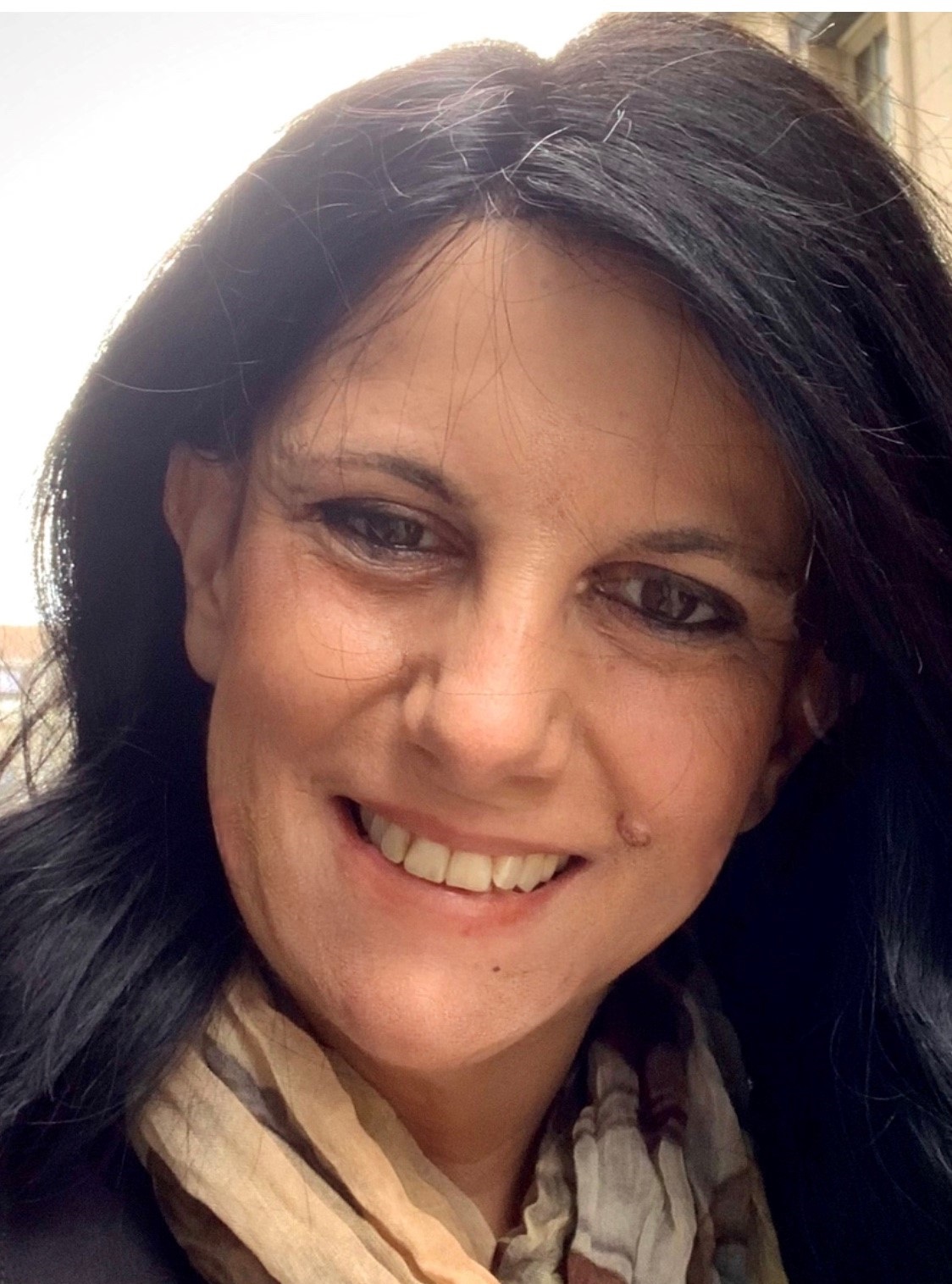
|
Eleni Hatziyanni DG Mare Eleni Hatziyanni is a Policy Officer at the European Commission - DG Maritime Affairs and Fisheries, contributing to the development of Maritime Policy and Blue Economy in the context of Sea-basin Strategies and Maritime Regional Cooperation, by focusing on the Mediterranean Basin, as well as on the European Strategy of Adriatic Ionian Region (EUSAIR). She holds a Ph.D. and a M.Sc. in Marine Ecology-Environmental Biology and a Diploma in Geology, while her Post Doc Research focused on Marine Spatial Planning and Integrated Coastal Zone Management. |
|
Pierre Bahurel Mercator Ocean International - CMEMS |
|
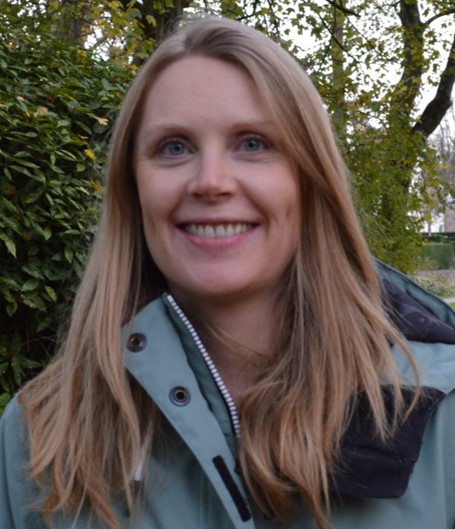
|
Kate Larkin EMODnet Kate Larkin is Deputy Head of the European Marine Observation and Data Network (EMODnet) Secretariat, and Head of Research and Marine Knowledge at Seascape Belgium. She is a marine scientist with a PhD in deep-sea biogeochemistry. Her expertise in the area of ocean observation includes post-doctoral research on North Atlantic ocean time-series, the FP7 EuroSITES open ocean observatory network, and her work with the European Marine Board think tank on ocean observing and marine research infrastructures. In her current role she interacts with stakeholders across the full marine knowledge value chain, spanning data collection to user uptake and including partnerships and dialogue with research, policy, industry and society. |
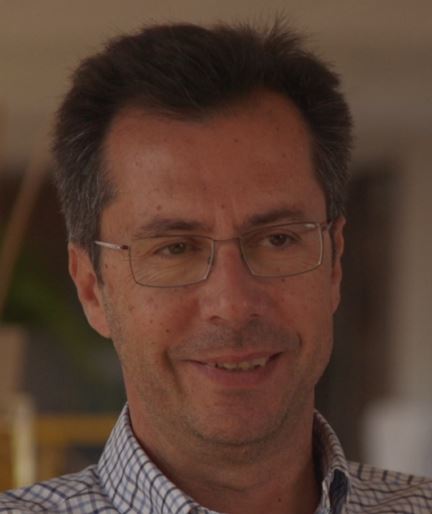
|
George Petihakis EUROGOOS George Petihakis is a senior researcher at the Hellenic centre for Marine Research (HCMR) with expertise in monitoring/observation of the marine environment and ecosystem modelling. He is the Chair of the Executive Board of Directors of EuroGOOS, JPI Oceans Management Board member and Regional Node Leader at EMSO-ERIC. |
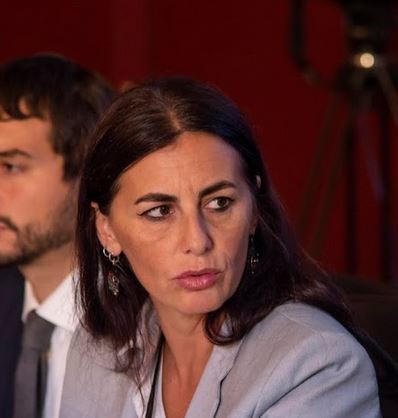
|
Alessandra Sensi UfM Alessandra Sensi is Head of Sector for Environment and Blue Economy at the Union for the Mediterranean Secretariat. She was Programme Manager for the Environment, Green and Blue Economy, Climate Change portfolio at the European Commission, EuropeAid, ENPI South, in Brussels until 2012; previously she worked for FAO in Rome; for the United Nations Environment Programme / Global Environment Fund in Nairobi and Geneva; for the Italian Ministry of Foreign Affairs in Vietnam and for Eurostat in Luxembourg. |
|
Rosalia Santoleri CNR -COI |
|
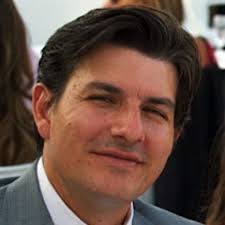
|
Giordano Giorgi INFO-RAC, ISPRA Scientific coordinator for INFO/RAC (Regional Activity Centre for Information and Communication) of UNEP/MAP, MS Italy representative in EU working groups WG DIKE and TG DATA of the Common Implementation Strategy of the MSFD and Member of the Coordination Committee ISPRA-Italian Ministry of Environment and the Protection of Land and Sea (MATTM) for the implementation of the MSFD. |